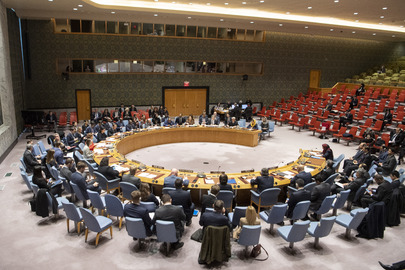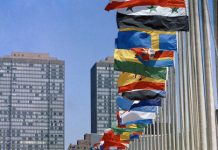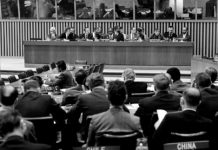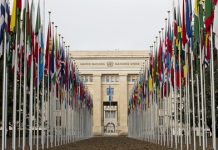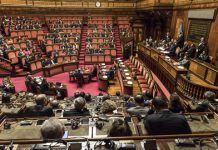It’s time to finance our future and ‘change course’, Guterres tells world leaders in Sevilla
World leaders gathered in Sevilla on Monday where Antonio Guterres urged them to grasp a once-in-a-decade opportunity to close a $4 trillion financing gap facing developing countries.
António Guterres said that sustainable development powered by international cooperation is now facing “massive headwinds” as trust between nations and institutions is fraying.
“We must fix the global debt system which is unsustainable, unfair and unaffordable. With annual debt service at $1.4 trillion, countries need — and deserve — a system that lowers borrowing costs, enables fair and timely debt-restructuring, and prevents debt crises in the first place.”
The UN chief was speaking as two-thirds of the Sustainable Development Goals – or SDGs that the world’s nations agreed to in 2015 are significantly off track.
To fix this, the Sevilla Commitment was adopted on Monday. It is a “global promise” to low-income nations to lift them up the development ladder, the UN Secretary-General said.
The accord was not signed by the United States which pulled out of the process earlier this month.
Measures to get resources flowing faster to developing countries include tripling the lending capacity of multilateral development banks, Mr. Guterres said.
Funding shortages threaten relief for millions of Sudanese refugees: WFP
Critical shortfalls in global humanitarian funding now threaten millions of Sudanese refugees who’ve fled war and have found refuge in neighbouring countries, the UN World Food Programme (WFP) said on Monday.
The UN agency warned that it faces having to make “drastic cuts” to life-saving food assistance in the Central African Republic, Egypt, Ethiopia and Libya in the coming months as resources run out.
The situation for many Sudanese refugees is already dire, more than two years since war erupted between Sudan’s national army and paramilitary rebels.
In Uganda, many vulnerable refugees are surviving on less than 500 calories a day – which is less than a quarter of daily nutritional needs, while new arrivals strain refugee support systems, WFP said.
The UN agency also noted that in Chad, which hosts almost a quarter of the four million refugees who fled Sudan, food rations will be reduced in the coming months unless there are new contributions from donors.
“This is a full-blown regional crisis that’s playing out in countries that already have extreme levels of food insecurity and high levels of conflict,” said Shaun Hughes, WFP Emergency Coordinator for the Sudan Regional Crisis.
Climate change: Transition to renewables must be just, says rights chief Türk
The global take-up of renewable energy that is already well underway must be fair and sustainable, the UN human rights chief insisted on Monday.
At the Human Rights Council, Volker Türk said that the shift away from fossil fuels needs to happen, against the backdrop of global warming.
But many other environmentally damaging activities need to be reassessed too, such as farming, construction and finance, Mr. Türk maintained.
He warned that most international support to countries transitioning to renewable energy is provided as loans which increase already crippling levels of debt in developing countries.
“Some 3.3 billion people now live in countries that spend more on debt interest payments than on either education or health – with a clear impact on the enjoyment of human rights by their people. In emerging and developing countries, debt interest payments outweigh climate investments.”
In a discussion on the climate emergency, the UN rights chief insisted that the transition to greener energy is already penalizing women who represent less than one-third of the workforce in renewable sectors.
But he noted that governments committed last year in the Declaration on Future Generations to creating a clean, healthy and sustainable environment.
This positive move has been bolstered by recent decisions by the European Court of Human Rights, the Inter-American Court of Human Rights and others clarifying the obligations of States to combat climate change and protect the environment.
Daniel Johnson, UN News
Music composed and produced by Joachim Harris. All rights reserved.
Source of original article: United Nations (news.un.org). Photo credit: UN. The content of this article does not necessarily reflect the views or opinion of Global Diaspora News (www.globaldiasporanews.com).
To submit your press release: (https://www.globaldiasporanews.com/pr).
To advertise on Global Diaspora News: (www.globaldiasporanews.com/ads).
Sign up to Global Diaspora News newsletter (https://www.globaldiasporanews.com/newsletter/) to start receiving updates and opportunities directly in your email inbox for free.


